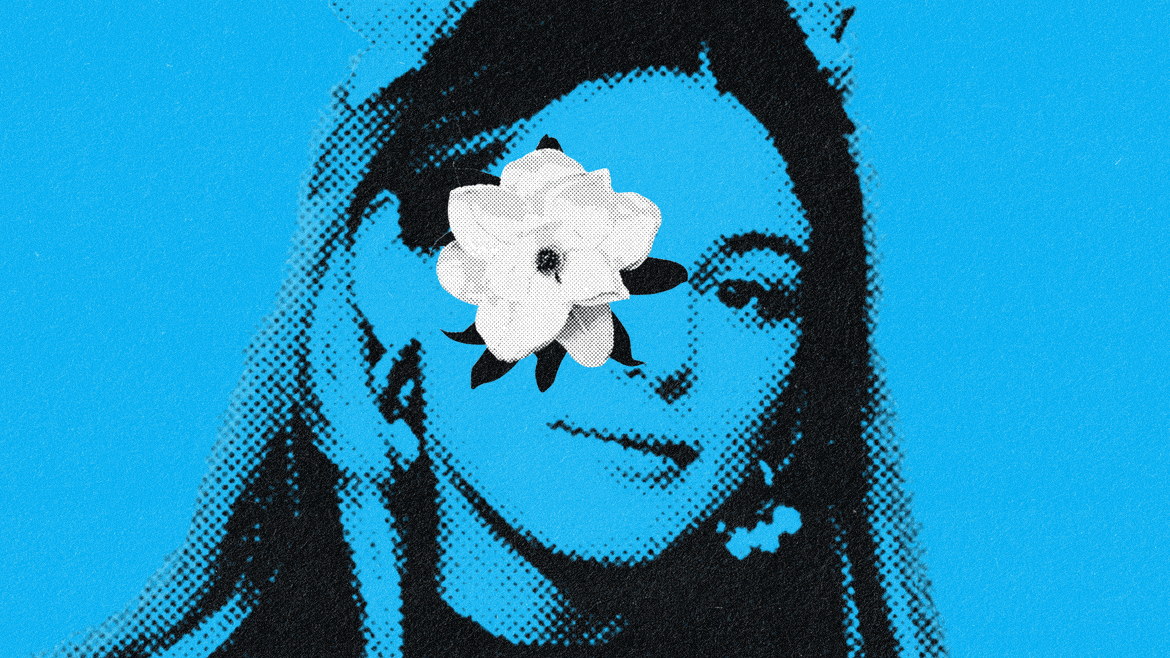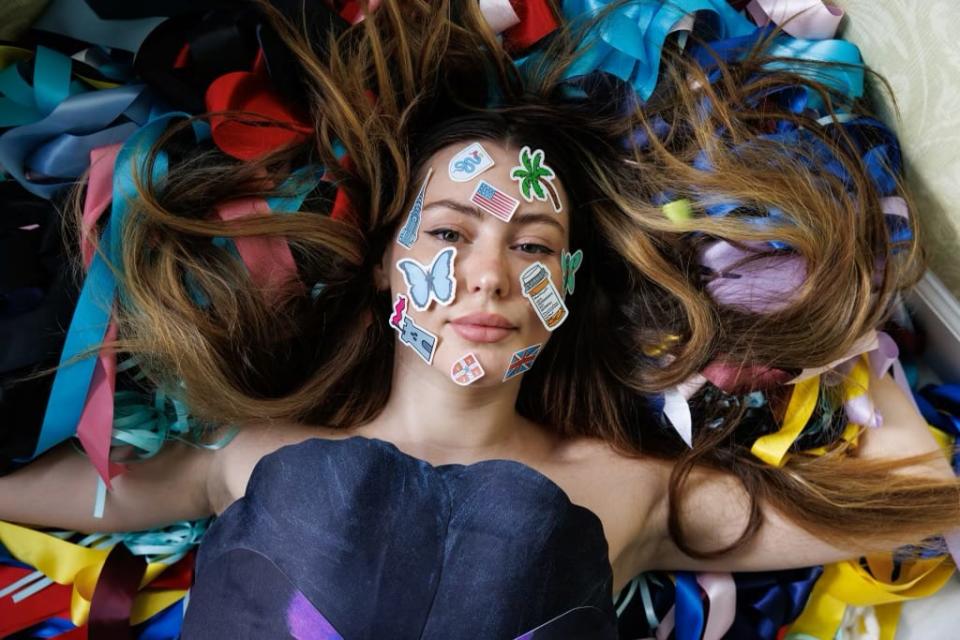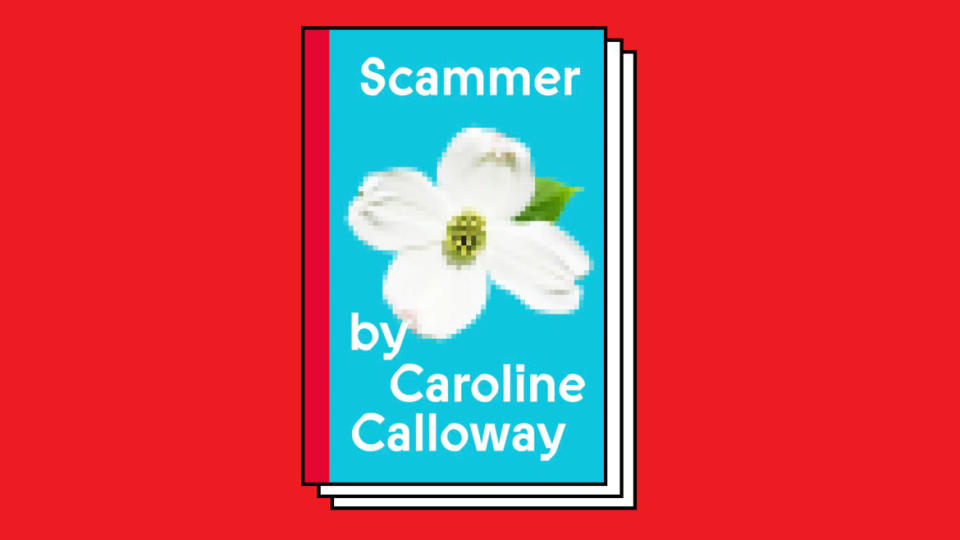Caroline Calloway’s Memoir Exposes the Human Behind the ‘Scammer’

- Oops!Something went wrong.Please try again later.
Every so often, whether I’m with casual acquaintances, among close friends, or talking to a man who’s interested in me, I enjoy dropping the infamous influencer/writer/so-called grifter Caroline Calloway’s name, just to see what happens.
“What’s Caroline Calloway up to these days, I wonder?” I ventured at a recent dinner party at a Carroll Gardens brownstone. Across the table, I watched a curly-haired girl’s face turn pink with rage. “She’s insane,” the girl spat. “She used to drug her cat and bring it to parties!” (I have no idea if that story is true, but I do know the cat is named Matisse.)
Last weekend, I brought my copy of Scammer—Calloway’s debut memoir, self-published under Dead Dad Press and available, as of this week, for pre-order on her website for $65—to the beach. “Just because she wrote a memoir doesn’t make her a writer,” a close friend said, assessing Scammer’s robin’s egg-blue cover with utter disdain.
Whether you have a personal Caroline grievance or you’ve never encountered her in real life, the mere idea of Calloway seems to trigger New York City’s digitally entrenched intelligentsia in a way that I find fascinating. And it’s this compulsion that makes Scammer a worthwhile read for her fans and haters alike, providing a window into a person who’s previously been reduced to little more than internet folklore.
Caroline Calloway’s Life Looks Shockingly Normal Now
Calloway’s name entered the mainstream lexicon around the same time as Fyre Fest’s Billy McFarland after she botched a book release and a series of $165-per-ticket “creativity workshops,” leading to a series of articles skewering her rise to internet fame as an Anglophile influencer with a Taylor Swift obsession. The discourse largely dug into the question of her authorship: Was it Calloway or her former best friend, essayist Natalie Beach, who wrote all those breathless Instagram confessions that had made her a social media sensation?
Since then, I’ve followed the 31-year-old’s online trajectory with deep interest. I gasped when she revealed on Instagram in 2021 that she’d painted the hardwood floors of her West Village apartment white. (It was a big deal, I assure you.) I’ve repeatedly watched her terribly cringey 2019 Red Scare Live appearance, in which she reveals that at the height of her Adderall addiction, she was taking 90 milligrams of prescription amphetamines every day.
And on Monday, as I lounged on my watermelon-patterned beach towel finishing Scammer—which, yes, Calloway definitely wrote; the ardent, batty, and at times completely unhinged prose is unmistakably hers—I was delighted to be reading a book that’s imperfect, but impressively written and worth the wait (and the backlash surrounding the wait).

Caroline Calloway in Sarasota, Florida on June 18, 2022.
Scammer is described by the author as a “daybook,” or a book meant to be consumed in a single, feverish sitting. Structured in vignettes, its first chapters find Calloway in present-day Sarasota, Florida, assessing the wreckage of her recent past: She’d bailed on a $100,000 book deal for School Girl, the never-produced memoir whose proposal she co-wrote with Beach as a student at Cambridge University. Failing to honor the contract sank Calloway into harrowing debt.
“There were certain things I had always known, and these things I knew down where the knowing meets the bone,” she writes in Scammer. “I always knew I would be a famous author… I knew I’d kill myself, too. Not now—not soon, but definitely in my sixties.”
Her single-minded pursuit of literary fame eventually destroyed her relationship with Beach. Calloway’s narrative has it that her ex-collaborator/ghostwriter published a dishonest tell-all essay about their toxic friendship in The Cut days before the body of Calloway’s father, who’d committed suicide by overdosing on painkillers, was discovered in her childhood home.
The endless she-said, she-said war between Calloway and Beach—over the degree to which the former’s ascent can be chalked up to the latter—interests me far less than the window we get into Calloway’s inner world in Scammer. She is obsessed with the aura of elite academia and the habits of the extremely privileged. Her descriptions of the hallowed surroundings she accessed via cunning deception—Calloway writes that she Photoshopped her Exeter transcript, revising bad grades so she could be accepted to Cambridge—make up the book’s best bits.
“My imagination is fucking fueled by private piccolo lessons and Ancient Greek homework and Olympic-size ice hockey rinks,” she writes at one point. Later: “An Austrian countess had invited me and my plus-one to three days of galas at three different castles. At her second ball, her father, the fucking margrave, asked politely to file out to the veranda after dinner for ‘un petite surprise.’ Fireworks lit up the baroque hedge-maze below in snapshots. A boy in lederhosen leaned toward his friend and whispered glumly, ‘Ve von’t be able to hunt for veeks.’”
Caroline Calloway’s Cameo in ‘Not Okay’ Is Simultaneously Brilliant and Terrible
When not waxing poetic about the chandeliers in the Harvard Lampoon Building, Calloway turns her pen on herself, and many of her anecdotes are deeply unflattering. For instance, after Beach told her she had been sexually assaulted, Calloway writes about “feeling something that was so fucked-up I need you to brace yourself,” admitting that she got aroused by her then-friend’s story. “I didn’t mean to be turned on,” she writes. “Natalie and I had never talked about sex together this graphically before.”
(Beach also has a book coming out, Adult Drama and Other Essays, on sale this week. Yes, she writes about Calloway.)
Elsewhere, Calloway notably falls short of taking full responsibility for her actions during her years of addiction to Adderall, instead blithely tossing off that, yeah, she’s sure she must have been a nightmare to deal with. Still, having clearly taken several notes from the excellent writer Cat Marnell, whose memoir details her own Adderall addiction and who Calloway specifically cites as an inspiration and a friend, Scammer’s passages about amphetamines are lucid and alarming.

With profits gleaned from renting out her West Village apartment on Airbnb and inventing “fake emergencies” to siphon cash from her parents, Calloway says that while she was a Cambridge student, she took monthly flights back to New York City from the U.K. to visit her American psychiatrist and re-up her Adderall prescription. She would stay awake for days at a time, developing what she calls a “zombie problem”: “My finger would turn white, starting at the tip, spreading downwards, like some horrific, sped-up virus. Then the finger next to it. Then my palm.”
After failing to follow through on School Girl in her senior year and getting canceled over the creativity workshop fiasco, Calloway writes that she eventually quit Adderall cold turkey and rode the wave of viral notoriety into Hollywood interest from Girls creator Lena Dunham and actress Margaret Qualley. According to Calloway, Qualley was set to play her in a film about her life until the actress began dating Dunham’s ex Jack Antonoff, and things supposedly got too messy for the project to continue.
In an attempt to finally abandon her kaleidoscopic talent for self-destruction, Calloway ends Scammer with a desire to move forward by airing out her darkest secrets: “Perhaps the antidote to shame is exposure.” This is hardly a new idea, and Scammer’s prose can at times feel choppy, unfinished, and far too Marnell-like, as though Calloway felt torn between emulating her literary heroes and truly inhabiting her own voice.
But Scammer’s gloriously specific millennial chaos, and the author’s frankly staggering ability to get out of anxiety-inducing fuckups—she writes that she paid back the $100,000 she owed to her ex-publishers in under a year by selling topless photos of herself on OnlyFans—are pure, uncut Calloway, and totally addictive.
“A cultural lunar eclipse” populated by “anti-woke right-wingers” is how she classifies Dimes Square, the infamous downtown NYC scene that revolves around a few square blocks in Chinatown. Sensing opportunity, Calloway threw herself into the scene in 2021. “Yes, I had to go on hip podcasts that’d also had Sandy Hook deniers as guests,” she writes. But she needed the social capital: “Dimes Square was my problematic ticket to a less problematic life.”
The U.S. Accidentally Set Up This Secret Scammer’s Paradise
To a certain extent, her efforts paid off: “It was finally cool (enough) to like me loudly again.” But the earnest connections she sought eluded her. “I wanted so badly to make lifelong friends out of these aloof, cool kids,” she writes. “But enthusiasm amongst the popular crowd is regarded as suspect—an animal admission of weakness. Cool kids see kindness and wonder: Why can’t this person afford to be ruder?”
In another very Calloway move, she teases several times in Scammer that she’s holding back many of her best stories for future books. Initially, I found this tic of hers irritating: Why wouldn’t you leave everything on the court in your literary debut? But upon further consideration, I’ve concluded that, like her idol Taylor Swift, Calloway has a gift for making you believe you know her—even and especially when she’s being explicitly withholding.
In other words: Caroline Calloway is, against all odds, a canny memoirist and a good writer. I’m going to keep paying attention.
Get the Daily Beast's biggest scoops and scandals delivered right to your inbox. Sign up now.
Stay informed and gain unlimited access to the Daily Beast's unmatched reporting. Subscribe now.

